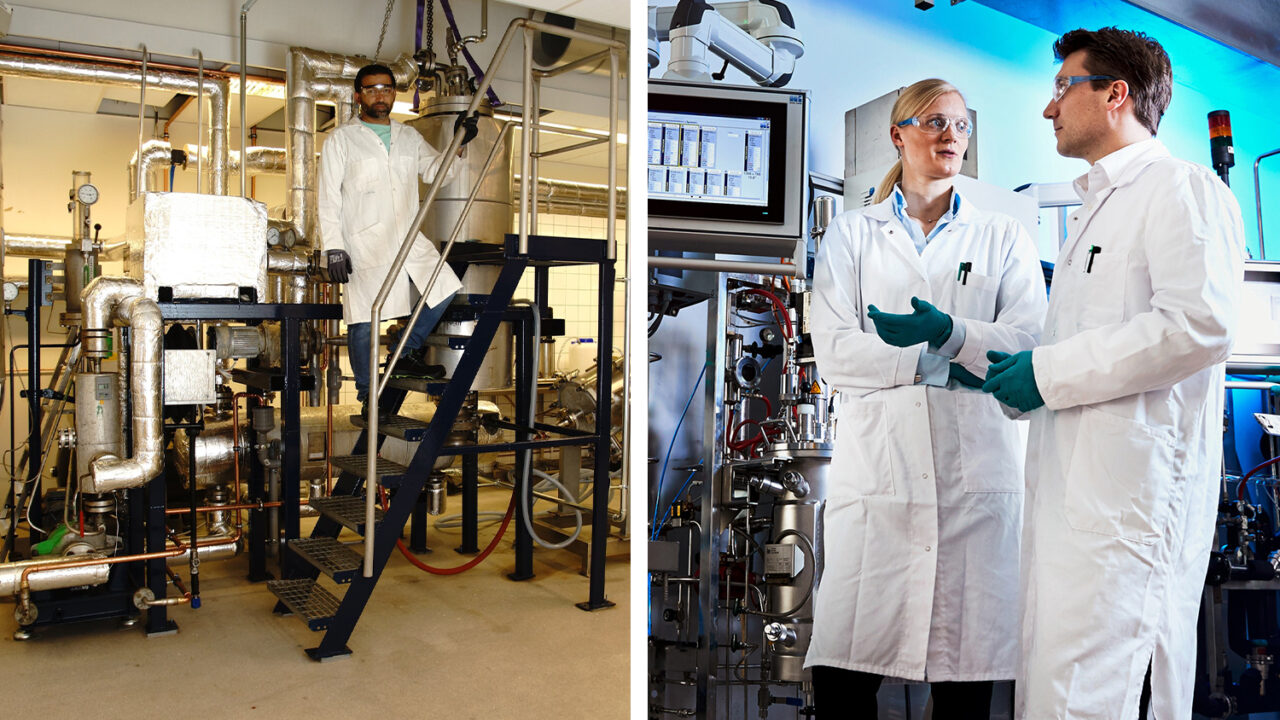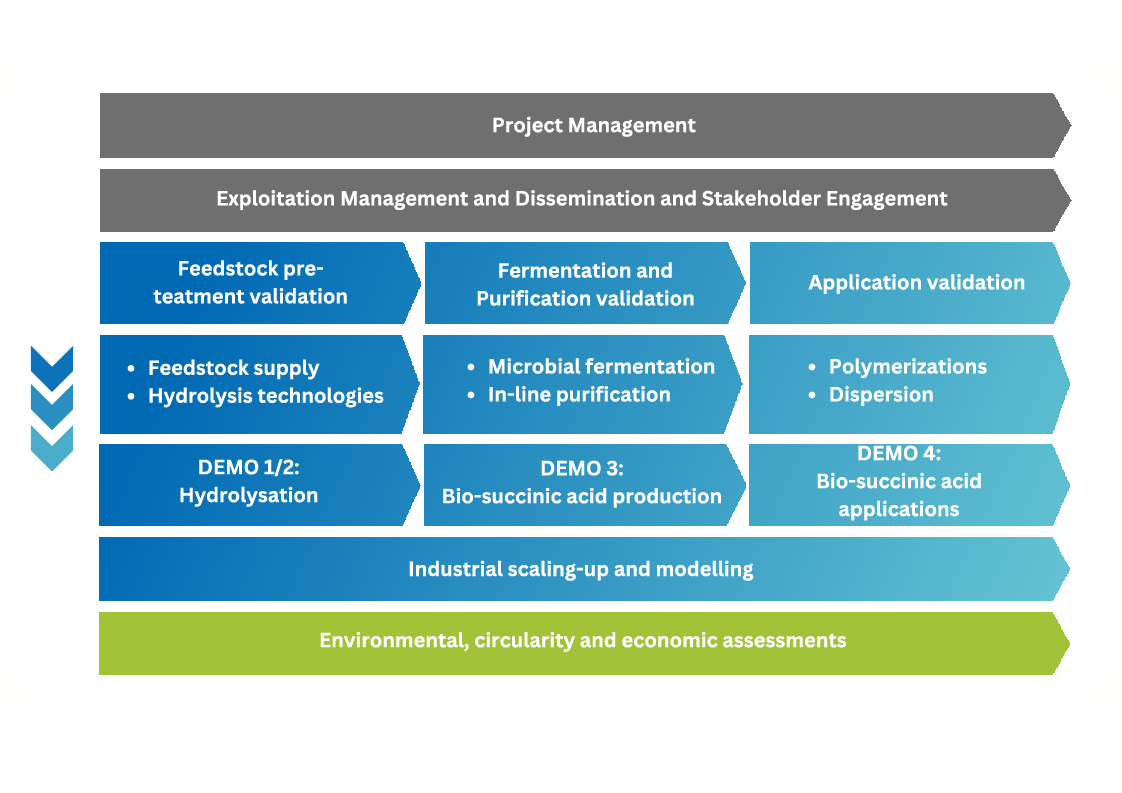Our Concept
LUCRA tackles the challenge of finding sustainable alternatives to fossil-based building blocks. As the demand for bio-based chemicals soars across industries, this project offers a pathway to reduce dependence on conventional chemicals derived from depleting petroleum sources.
Furthermore, LUCRA addresses the issue of underutilized organic waste and side streams. With millions of tons of bio-waste and wood waste generated annually in the EU, LUCRA aims to transform this waste into a valuable resource by optimizing waste valorization technologies.
Three demonstration activities
LUCRA focuses on demonstrating the technical and economic feasibility of turning organic waste into bio-succinic acid on a pre-industrial scale.
Unlocking Waste’s Potential: LUCRA’s journey begins with the validation of feedstock pre-treatment and hydrolysis technologies, ultimately leading to the critical demonstration of hydrolysation processes. It’s the first step towards making waste a valuable resource.
The Bio-Succinic Acid Breakthrough: The next phase delves into microbial fermentation and purification validation. With in-line purification and fermentation, LUCRA demonstrates how bio-succinic acid can be efficiently produced, turning waste into valuable material.
Applications that Matter: LUCRA’s mission extends to the validation of succinic acid applications, including polymerizations and dispersions. These innovations will demonstrate succinic acid’s potential across various sectors, driving economic and societal shifts.
In parallel with all three demonstration phases, LUCRA strongly focuses on industrial scaling-up and modelling to ensure the seamless transition from pilot to large-scale production.
Beyond demonstrations
LUCRA’s impact stretches beyond its demonstrations. It aims to assess processes and products comprehensively, considering factors like environmental sustainability, business opportunities, and societal engagement. By offering a sustainable biotechnological process validated in an industrial environment, LUCRA strives to significantly reduce environmental impacts, including greenhouse gas emissions.
Furthermore, LUCRA adds value to waste streams by efficiently recovering organic fractions, outperforming current processes and benchmarks. This bio-based success story extends further as bio-succinic acid finds applications in innovative polyester polyols, unlocking economic opportunities and driving a societal shift in consumer behaviour. LUCRA will also influence policymakers to reevaluate limits for municipal solid waste and wood waste streams.
Moreover, LUCRA’s enhanced valorisation efficiency will create a sustainable economic impact and open new business opportunities for the EU’s bio-based industry. By deriving value from agro-industrial biomasses and side streams while reducing disposal costs, LUCRA heralds a future where waste becomes wealth and sustainability reigns supreme.

© Montinutra Oy
© Covestro AG
LUCRA in short
